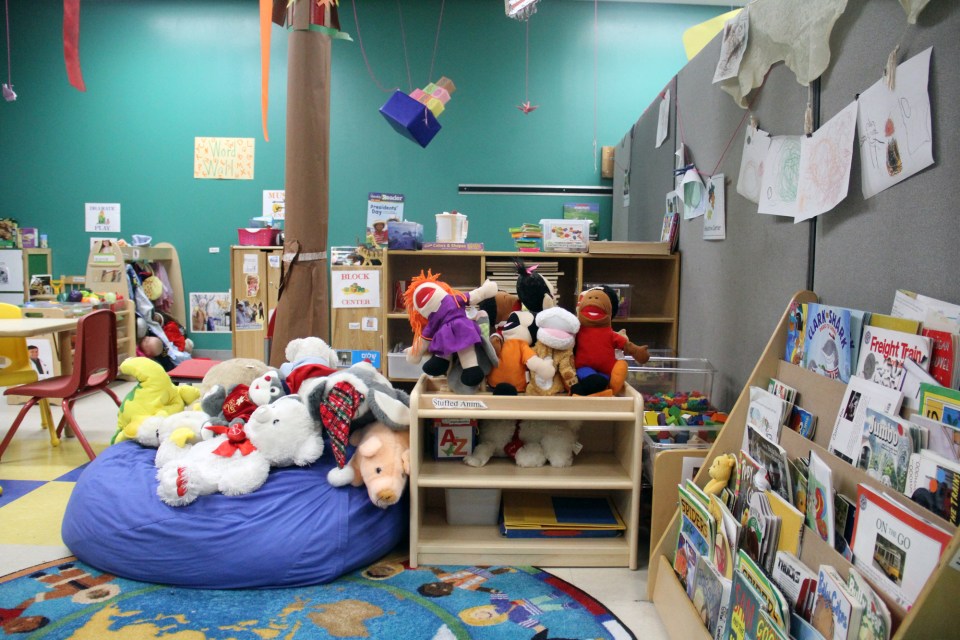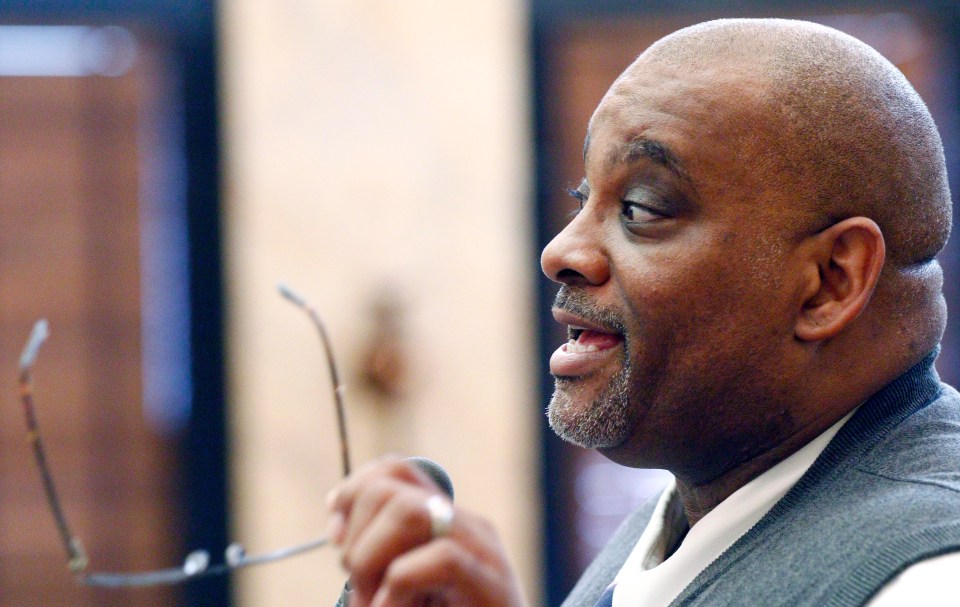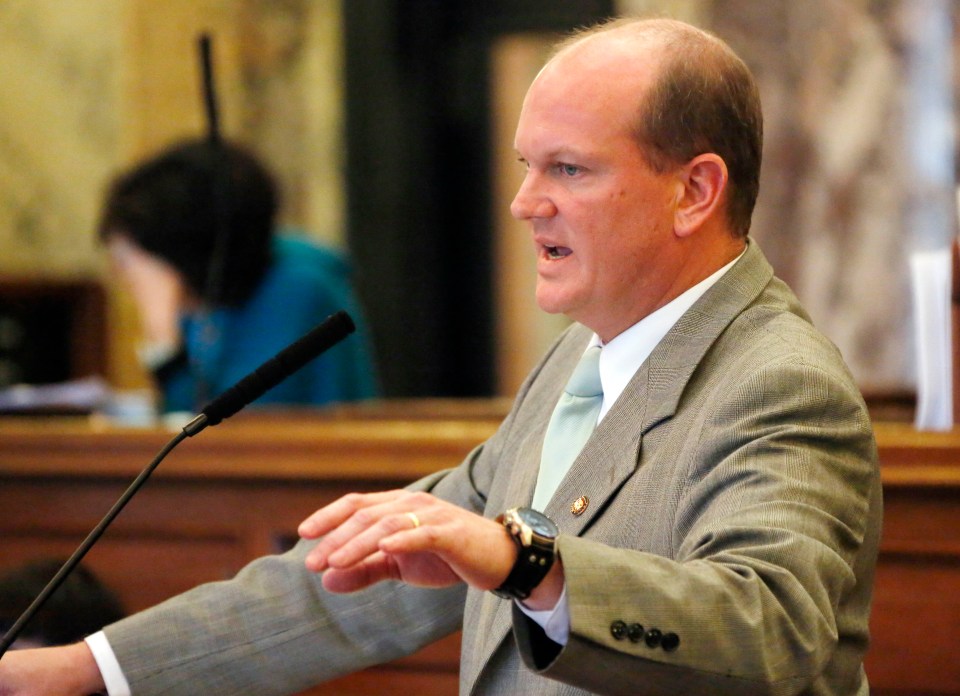This article is the second in a series investigating the child care system in Mississippi.

JACKSON, Miss. — Efforts to fix problems in Mississippi’s child care system over the past decade have largely failed. A handful of lawmakers and nonprofits have tried to pass new laws, introduce new regulations or bring more money to cash-strapped day cares, only to be rebuffed in the legislature and thwarted by a labyrinthine oversight system that falls under three different government agencies.

A Hechinger Report and Clarion-Ledger joint investigation of state child care inspection and complaint reports in Mississippi’s largest health department district found that many child care centers struggle to meet minimum regulations for health and safety, with some racking up thousands of dollars in fines for leaving children unattended or with staff who haven’t passed a background check.
Help for centers trying to improve is sporadic or nonexistent and often left up to a small group of nonprofits in the state.
Lawmakers, child care advocates and center workers agree change is needed, but disagree on how the system should be altered to improve centers’ safety and quality.
Without widespread high-quality early childhood care and education, many of Mississippi’s children start school at a disadvantage. More than 40 percent of kindergarten teachers surveyed in 2013 said their students were not “adequately prepared” for kindergarten — they were unable to identify colors and shapes or hold a crayon, for example — according to Mississippi Kids Count, which collects state education data and statistics. In 2014, a national literacy test found two-thirds of Mississippi’s kindergartners unprepared for school.
“The Department of Health as an agency doesn’t know anything about curriculum and doesn’t know anything about the education side.”
Despite these struggles, since 2007, the state legislature has passed and the governor has signed only two bills exclusively focused on child care — and neither has anything to do with quality or safety.
One designated May 11, 2012, as “Child Care Appreciation Day”; the second requires that centers provide education about the risks of the flu and availability of flu vaccines.
By contrast, in 2010 alone, the legislature passed and the governor signed five bills about hunting.
In Mississippi, where students consistently score near or at the bottom on nationwide exams, child care will be critically important in changing the tide, said Erik Flemming, a former member of the Mississippi House of Representatives and current legislative strategist for the American Civil Liberties Union of Mississippi.
Yet the legislature often overlooks it.
“I won’t say that child care is ignored, but it’s like mental health,” Flemming said. “It doesn’t have that prioritization.”
In the past decade, nearly all the proposed bills that sought to change or improve the child care system have been voted down in committee; some were never even discussed.
A bill proposed in 2007 would have provided grants to help child care workers pay for early childhood classes and training. Another 2007 bill would have required the state’s Department of Education to create minimum education standards for child care providers. A 2015 bill would have provided tax credits both to centers that participate in the state’s pre-K program and to parents who choose those centers.
Related: Calling all Mississippi parents: Let’s talk about child care

In Mississippi, there are 1,521 licensed child care centers according to the Department of Health, and nearly 160,000 children under age 6 who potentially need child care, according to Child Care Aware, a Virginia-based nonprofit that focuses on child care resources for parents.
Those children may be served by the state’s regulated child care system, which oversees day cares serving six or more unrelated children, or by the state’s scattered and largely unregulated network of family child care homes, which do not need to be licensed by the state if five or fewer unrelated children attend.
Low-income children through age 5 who are at or below the poverty level may attend federally funded Head Start centers overseen by both state and federal regulators. Mississippi also has a small system of state-funded pre-K programs for 4-year-olds run by the Department of Education.
The Department of Health is in charge of licensing the centers, conducting health and safety inspections and investigating complaints. Centers are also inspected by local fire departments for safety measures like working smoke detectors and available exits.
In addition, centers that enroll kids whose parents receive state aid to pay for child care must deal with the Department of Human Services, which disburses the payments and distributes federal child care funds to various state programs. The department also provides books and other resources to centers.
If a child care center participates in a voluntary quality improvement program run by Mississippi State University, it is rated on a set of standards that includes assessments of its curriculum, toys and classroom materials. Centers with higher ratings can earn larger reimbursements for children whose tuitions are partially covered by the state. Less than 40 percent of eligible centers submit to this scrutiny.
Centers can also enroll in a federal healthy food program through the state’s Department of Education, which reimburses the costs of healthy food following an additional inspection and submission of paperwork and food receipts.
This overlapping system of oversight and funding — and lack of coordinated support — causes confusion and undermines child care quality rather than reinforcing it, many experts and center workers say.
“There’s no home — no one agency that has control. It doesn’t really make sense,” said Rhea Williams-Bishop, executive director at the Jackson-based Center for Education Innovation. “You’ve got to have some entity that will provide accountability and stability.”
The Department of Health has the most control — it’s the only agency that can open or close a center and impose fines — yet there are holes in its monitoring process, according to advocates and legislators.
The department’s Child Care Facilities Licensure Division doesn’t look at issues most experts say are critical to child development, such as curriculum or the kinds of activities that children participate in during the day (although it does check to make sure a schedule of activities is posted).
That narrow approach limits how effectively the state can monitor centers, said Cathy Grace, co-director of the Graduate Center for the Study of Early Learning at the University of Mississippi.
“In the past, the health department has felt like their primary job was health and safety,” she said. “If the water was tested and the gas was working and nobody was going to die or be sick from bad food, they met their obligation. … That worked a long time ago, but that’s not going to work in this day and time if there are so many more expectations placed in schools.”
“Parents are the first teachers, but child care providers are a second layer.”
Mississippi is one of only a few states that put their Department of Health in control of child care licensing. Only three other states put such licensing under a health department. In nine states, a department that encompasses health and other services, such as health and welfare or health and the environment, has control. In most states, licensing is done either by the Department of Human Services or the Department for Children and Family Services. Separate departments of Education or Early Learning oversee child care licensing in six states. And many of those agencies do not limit inspections to health and safety issues.
Indiana’s Office of Early Childhood and Out-of-School Learning (in the Family and Social Services Administration), for example, checks for opportunities in art, dramatic play, literary practice and fine motor skills development.
Iowa’s Department of Human Services checks if a “program provides a curriculum or program of activities that promotes self-esteem and positive self-image, social interaction, self-expression and communication, creative expression, and problem-solving skills.”
New Mexico’s inspectors must observe caregiver interactions with children to determine if the adults “talk and actively listen to children and respond appropriately” and “model appropriate social behaviors, interactions and empathy.”
Related: Why is ‘high quality’ so elusive in Mississippi’s child care centers?
Although many Mississippi child care workers and some legislators say the Department of Health should continue to monitor centers for safety and cleanliness, multiple legislators have pushed for the Department of Human Services, which is in charge of federally-funded child care vouchers for low-income families, to take over licensing.
But many child care workers and advocates don’t trust the Department of Human Services. In 2012, the agency rolled out a controversial policy requiring all parents who receive child care assistance from the state to scan their fingerprints when picking up and dropping off children.
Child care owners spoke out against the program, which they said added an undue burden to centers and parents. (Ultimately the program was scuttled after a judge found that the department failed to complete a required economic impact statement.)

At J J’s Development Center in Pearl, Director Shelia Cooper was part of the pilot program for the fingerprint scanners before it was discontinued; she called it “a disaster,” and said her fingerprint scanner now sits untouched in the center’s office.
“I lost faith in the Department of Human Services,” Cooper said on a recent morning. “It was a big waste of money, instead of giving it to the children.”
Paul Nelson, public information officer for the Department of Human Services, declined to comment on any legislation that would put the department in charge of licensing child care centers.
Some lawmakers have suggested that the Department of Education should take a larger role in regulating centers.
“The Department of Health as an agency doesn’t know anything about curriculum and doesn’t know anything about the education side,” said State Sen. Brice Wiggins, R-Pascagoula.
Many caregivers interviewed by The Hechinger Report said that they try to teach kids at least basic skills — the alphabet and numbers, for example — even though doing so isn’t checked or mandated by the health department.
State Rep. John Hines, Sr., D-Greenville, has proposed several child care bills over the past decade. “I believe the Department of Education should have some major say in early education,” Hines said. “Parents are the first teachers, but child care providers are a second layer.”
Related: Do you know how your child care center is doing? Why it’s hard to find out
The Department of Education already offers child care workers free training on the state’s recently developed learning standards for 3- and 4-year-olds, according to Jill Dent, director of early childhood education there. But department officials wouldn’t say whether they’d want a larger role.
Some lawmakers and advocates call for a new government office to oversee all facets of early childhood education, including child care centers. At the very least, they say, coordination between agencies needs to be formalized to cut down on confusion and make oversight more efficient and rigorous.

In 2015, for example, Wiggins proposed a bill to create an Early Childhood Services Interagency Coordinating Council, bringing together the Department of Education, the Department of Health, the Department of Human Services and the Head Start programs to “align paperwork, monitoring visits, and evaluation of early education providers when state or federally funded programs overlap to eliminate duplication of effort.”
The bill failed, but Wiggins said he intends to introduce it again during this year’s legislative session. “These child care centers get frustrated, and they get frustrated at the bureaucracy,” he said.
In a November report, the State Early Childhood Advisory Council, which is housed under Mississippi’s Department of Human Services, described plans to better integrate the state’s various early childhood departments, including the creation of an early childhood data system for several agencies to use. The report argued that “without specific governance and coordination across early childhood, efforts within the early childhood system will remain pocketed and fragmented, leading to inefficiency, unrealized potential, and a lack of success.”
Carol Burnett, founder and executive director of the nonprofit Mississippi Low-Income Child Care Initiative, which advocates for parents and centers, said many states that prioritize early childhood education allow a government agency such as a Department of Early Education or a children’s cabinet to oversee child care centers and other early education systems under one roof.
Burnett suggested that Mississippi consider something similar.
“All these state departments have their finger in this child care center but none of those state agencies are really talking to each other,” Burnett said. “It would help in building a system that’s not so fragmented.”
This story was produced by The Hechinger Report, a nonprofit, independent news organization focused on inequality and innovation in education. In the coming weeks, this series will look at challenges providers face in staffing their centers, how parents afford day care, unlicensed centers and solutions for Mississippi and other states.
Reproduction of this story is not permitted.


